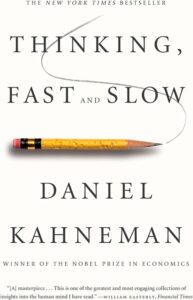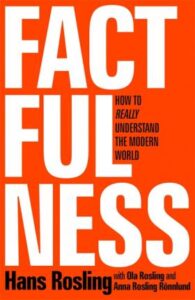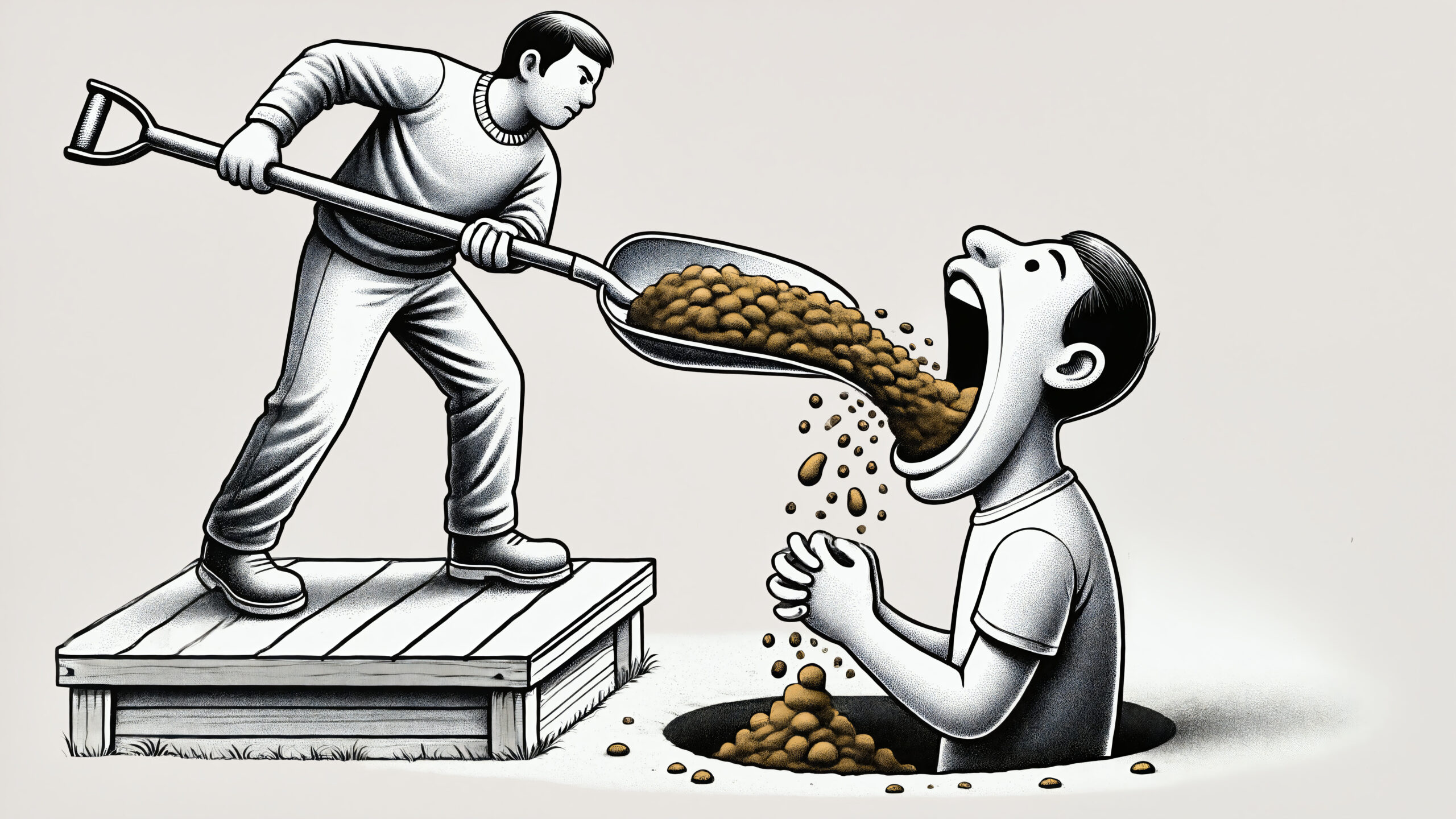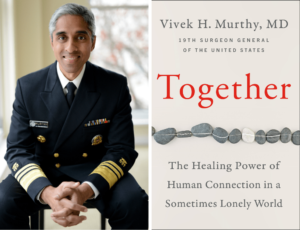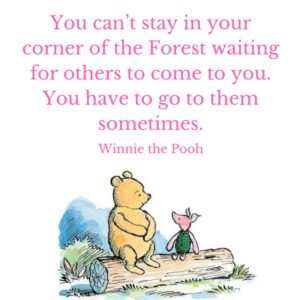Article Summary:
Many people struggle to maintain a strong relationship with their spouse or partner. This article offers practical insights to help you strengthen your bond and show up more intentionally—and a quick checkup tool.
+++
How is your relationship with your spouse or partner? When you hear the Righteous Brothers sing “You’ve lost that lovin’ feeling,” does it ring true a little? Does it feel “gone, gone, gone”?
The quality of your closest relationships can have an enormous impact on your quality of life. A strong partnership can bring joy, support, and meaning, while a strained one can drain your energy and peace of mind.
Of course, you don’t have to be in a relationship to be happy or fulfilled. Many people thrive on their own or through other meaningful connections. But if you are with a spouse or partner, there’s almost always room to grow.
Here we explore the key areas to check in on, so you can quickly see how things are going and where a little extra attention might make a big difference.
1. Physical and Emotional Safety
At the foundation of every healthy relationship is safety—both physical and emotional. Without it, trust can’t grow and connection withers.
Ask yourself: Do you feel safe with your partner? Safe to be yourself? To speak up? Are there any places where you feel guarded, fearful, or silenced?
But this isn’t just about what you receive—it’s also about what you give. Ask yourself too: Does your partner feel safe with you? Do you create space for them to express themselves without judgment? Do you listen with respect, even when you disagree? Do you handle conflict respectfully and productively?
It’s about both of you showing up in ways that honor each other’s boundaries, well-being, and dignity. Without a strong and deep sense of safety, everything else feels precarious.
“Belonging begins with safety…. this is a place and a relationship where you feel safe enough to be the real you.”
-Jonathan Fields, How to Live a Good Life
2. Giving and Receiving Love
When you express love openly and received fully, connection deepens. When you don’t, misunderstandings and distance creep in.
Ask yourself: Do you feel loved and appreciated by your partner? Do they show care in ways that resonate with you—through words, actions, time, or affection? Are you open to receiving their love, or do you deflect it?
Now turn the mirror around: How are you showing love to your partner? Do you express it in ways that are meaningful to them, not just the ways that come naturally to you? (Check out Gary Chapman’s “five love languages” for an excellent resource.) Are you consistently letting them know how much they matter to you?
Love isn’t just a feeling. It’s a practice that takes attention and effort from both of you. Love flows both ways in the healthiest relationships. If there’s an imbalance, see it as an invitation to talk about it and grow in how you give and receive love.
“Your goal is not to find love, but to remove all barriers which are preventing you from receiving it.”
-Rumi
3. Honesty
Without honesty, trust erodes, a chasm emerges, and resentment creeps in.
Ask yourself: Are you confident that your partner is honest with you? Can you rely on their words and trust their actions? Do you believe they’re being genuine about who they are and what they feel?
Then consider the other side: Are you showing up with honesty? Do you tell the truth, even when it’s uncomfortable? Do you hide parts of yourself out of fear of judgment, or do you let your partner see the real you?
Honesty fosters safety, which you need for intimacy. When you’re both committed to truthfulness—spoken with kindness and respect—it helps your relationship deepen.
4. Trust
Trust is the foundation of a healthy relationship. It’s what lets you feel confident in your partner’s words and actions. It allows both of you to rely on each other without doubt or anxiety. Trust develops through consistent honesty, reliability, and mutual respect over time.
Ask yourself: Are you confident that you can truly rely on your partner? Do they follow through on their commitments? Are you convinced that they have your best interests at heart?
Now consider the other side: Are you trustworthy as a partner? Do you keep your promises and create a sense of dependability that your partner can count on? When you both actively nurture trust, small actions accumulate over time into a deep sense of security and connection.
“Trust is the glue of life. It is the most essential ingredient in effective communication.
It is the foundational principle that holds together all relationships.”
-Stephen R. Covey
5. Respect
When respect is present, communication is calmer, conflicts are more productive, and both partners feel seen and valued. Respect is about valuing your partner’s thoughts, feelings, and boundaries, even when you disagree.
Ask yourself: Do you feel respected by your partner? Do they listen to you, honor your boundaries, and treat you well?
Then flip it: Do you show respect to your partner? Do you listen actively, consider their perspective, validate their feelings, and honor their needs? Do you avoid dismissive or hurtful behaviors, even in moments of frustration?
Mutual respect strengthens connection and creates a safe space for you both to grow.
6. Mutual Support
Mutual support is about being there for each other during challenges, celebrating successes together, and creating an ironclad sense of togetherness and teamwork. When support flows both ways, it strengthens connection and helps you both feel understood and valued.
Ask yourself: Do you feel supported by your partner? Do they encourage you, listen when you need to talk, and step up when you need help?
Then consider the other side: Are you being a supportive partner? Do you notice when your partner needs encouragement, help, or someone to listen? And do you offer your time, attention, and care in ways that meet their needs?
When you both actively give and receive support, life’s challenges feel more manageable—and successes feel more meaningful.
7. Communication
Clear, open, and honest communication involves more than just talking. It’s also about listening, understanding, and expressing yourself in ways that build connection. Effective communication helps prevent misunderstandings, resolves conflicts, and deepens intimacy.
Ask yourself: Do you feel heard and understood? Do they take the time to listen and respond thoughtfully, even when topics are uncomfortable?
Now flip it: Are you communicating effectively? Do you listen without judgment, check for understanding, and express yourself honestly? Do you create space for dialogue rather than letting assumptions or frustration take over?
Strong communication nurtures trust, respect, and closeness.
8. Openness
Openness means being willing to share your thoughts, feelings, and experiences honestly. It’s about vulnerability, curiosity, and a willingness to grow together. Openness fosters understanding, intimacy, and a sense that you can truly be yourself with each other.
Ask yourself: Do you feel that your partner is open with you? Do they share their thoughts and feelings honestly, and are they willing to listen to yours without judgment?
Then reflect on your own role: Are you being open with your partner? Do you share what matters to you, express your needs, and let them see your true self?
Openness is a two-way street. When you both engage in honest and receptive communication, the relationship becomes stronger and more resilient.
“We cultivate love when we allow our most vulnerable and powerful selves to be deeply seen and known, and when we honor the spiritual connection that grows from that offering with trust, respect, kindness, and affection.”
-Brene Brown, researcher and author
9. Appreciation
Regularly expressing appreciation is a simple but powerful—and often neglected—way to strengthen your relationship. When you notice and acknowledge the efforts, qualities, and actions of your partner, it reinforces their value and nurtures positive connection. Appreciation isn’t just about big gestures. Small, everyday acknowledgments add up to something powerful.
Ask yourself: Do you feel genuinely appreciated by your partner? Do they acknowledge the things you do and recognize the qualities they value in you?
Then reflect on your own role: Are you expressing appreciation to your partner consistently? Do you notice the little things they do and acknowledge them? Are you expressing your gratitude, or do you assume they know how you feel?
When you both make appreciation a habit, it strengthens your bond and fosters a more joyful, supportive relationship.
10. Affection
Affection is how you express love and show care in everyday life. It can be physical, like hugs or hand-holding. Or verbal, like compliments and encouragement. Regular expressions of affection help partners feel secure, valued, and connected.
Ask yourself: Do you feel affection from your partner in ways that matter to you? Do they make you feel seen, cared for, and loved on a regular basis?
Now consider your own role: Are you showing affection in ways that resonate with your partner? Do you express care, appreciation, and warmth consistently, both in words and actions?
Affection strengthens bonds and reinforces your love and sense of intimacy.
11. Intimacy
When you know someone deeply and feel safe with and accepted by that person, you can develop an intimate closeness. Intimacy can be not only physical but also emotional, mental, or even spiritual. Intimacy strengthens attachment and helps you both feel safe and valued.
Ask yourself: Do you feel close and connected to your partner? Can you share your vulnerabilities, dreams, and fears without judgment?
Then reflect on your own role: Are you creating space for intimacy? Do you listen deeply, respond with empathy, and share your authentic self? Do you nurture connection through small daily actions as well as deeper conversations?
12. Commitment
Commitment is the promise to show up for your partner hip over the long haul—even through difficulties. It gives your relationship stability. Commitment isn’t just about staying. It’s about actively investing in the relationship every day.
Ask yourself: Is your partner genuinely committed to your relationship? Do they prioritize it, even when life gets busy or stressful?
Then flip it: Are you fully committed to your partner and your relationship? Do you consistently invest time, energy, and care?
When you both show commitment, your relationship can strengthen and weather challenges over time.

13. Faithfulness
Faithfulness is about honoring the trust and exclusivity in your relationship. It’s not only about physical fidelity. It’s also about emotional and mental fidelity, being true to your commitments, and avoiding behaviors that could harm your partner or your bond. Faithfulness builds trust and a sense of security in your relationship.
Ask yourself: Do you feel that your partner is fully faithful to you—in thought, word, and action? Can you trust them completely to honor the boundaries and commitments you’ve agreed on?
Then reflect on your own role: Are you faithful in all aspects of your relationship? Do you act in ways that protect and strengthen your bond rather than undermine it? Are you worthy of the trust your partner has placed in you?
14. Healthy Conflict
Conflict is inevitable in any relationship, but how you handle it makes all the difference. Healthy conflict allows you both to express your needs, feelings, and perspectives without attacking, belittling, judging, or withdrawing. It’s not about avoiding disagreements. It’s about managing them in ways that strengthen understanding and connection.
Ask yourself: Do you feel that conflicts with your partner are handled respectfully and constructively? Can you disagree without fear of escalating into hurtful arguments, resentment, or contempt?
Then flip it: Do you approach disagreements with calm, respect, and a willingness to understand your partner’s point of view? Do you avoid blame, listen actively, and focus on finding solutions rather than trying to “win” the argument?
Learning to navigate disagreements with care is one of the most important skills for a lasting partnership. Poor conflict management skills destroy too many otherwise good relationships.
15. Fun
How’s the fun factor in your relationship? Are you laughing often? Enjoying activities together? Being silly with each other? The fun factor helps strengthen connection, reduce stress, and create lasting positive memories. Fun can reduce some of the heaviness and bring in levity, light, and joy.
Ask yourself: Do you have enough fun together? Are you finding moments to laugh, play, and simply enjoy each other’s company?
Then flip it: Are you bringing fun into the relationship? Do you make time for shared activities, lightheartedness, and spontaneity? How about laughter and play, even during busy or stressful times?
Prioritizing fun keeps your relationship vibrant and fosters intimacy.
Relationship Checkup
Take the relationship checkup below to get a quick sense of how you’re doing together.
📝 Relationship Checkup
Rate each area below:
1 = needs work | 2 = doing fine | 3 = doing great
- Physical and emotional safety
1. needs work 2. doing fine 3. doing great
- Giving and receiving love
1. needs work 2. doing fine 3. doing great
- Honesty
1. needs work 2. doing fine 3. doing great
- Trust
1. needs work 2. doing fine 3. doing great
- Respect
1. needs work 2. doing fine 3. doing great
- Mutual support
1. needs work 2. doing fine 3. doing great
- Communication
1. needs work 2. doing fine 3. doing great
- Openness
1. needs work 2. doing fine 3. doing great
- Appreciation
1. needs work 2. doing fine 3. doing great
- Affection
1. needs work 2. doing fine 3. doing great
- Intimacy
1. needs work 2. doing fine 3. doing great
- Commitment
1. needs work 2. doing fine 3. doing great
- Faithfulness
1. needs work 2. doing fine 3. doing great
- Healthy conflict
1. needs work 2. doing fine 3. doing great
- Fun
1. needs work 2. doing fine 3. doing great
Be sure to celebrate what’s working and identify one or two areas you want to work on.
Conclusion
Taking the time to check in on your relationship is a powerful way to strengthen the bond with your partner and enhance your overall quality of life. Reflecting on areas like trust, communication, affection, and mutual support can reveal both what’s working well and where there’s room to grow. (And there’s always room to grow.)
Don’t expect perfection. Focus instead on awareness, intention, effort, and improvement. By honestly assessing how you and your partner show up for each other, and by taking small, consistent actions, you can nurture connection and deepen intimacy. By doing so, you can create a relationship that’s secure, joyful, and fulfilling.
Choose one area to focus on this week. What’s one meaningful step you’ll take today to strengthen your relationship and help it thrive?
Wishing you well with it.
–Gregg

Tools for You
Related Articles and Books
Postscript: Inspirations on Spouse or Partner and Quality of Life
- “Success in marriage does not come merely through finding the right mate, but through becoming the right mate.” -Rabbi Barnett Brickner
- “Far too many people are looking for the right person instead of trying to be the right person.” -Gloria Steinem
- “Feeling safe in someone’s energy is a different kind of intimacy. That feeling of peace and protection is really underrated.” -Vanessa Klas
- “A great relationship doesn’t happen because of the love you had in the beginning, but how well you continue building love until the end.” -Orebela Gbenga
- “Trust is built in very small moments, which I call ‘sliding door’ moments. In any interaction, there is a possibility of connecting with your partner or turning away from your partner. One such moment is not important, but if you’re always choosing to turn away, then trust erodes in a relationship—very gradually, very slowly.” -John Gottman
- “Love is an action. Never simply a feeling.” -bell hooks
- “…even in stable, happy relationships: When conflict begins with hostility, defensive sequences result.” -John Gottman, The Science of Trust: Emotional Attunement for Couples
- “For it is in loving, as well as in being loved, that we become most truly ourselves. No matter what we do, say, accomplish, or become, it is our capacity to love that ultimately defines us. In the end, nothing we do or say in this lifetime will matter as much as the way we have loved one another.” -Daphne Rose Kingma, psychotherapist
- “Love is not affectionate feeling, but a steady wish for the loved person’s ultimate good as far as it can be obtained.” -C.S. Lewis
- “Real love is accepting other people the way they are without trying to change them.” -Don Miguel Ruiz, The Four Agreements
- “The greatest catalyst for change in a relationship is complete acceptance of your partner as he or she is, without needing to judge or change them in any way.” -Eckhart Tolle, The Power of Now
- “Love never dies a natural death. It dies because we don’t know how to replenish its source. It dies of blindness and errors and betrayals. It dies of illness and wounds; it dies of weariness, of witherings, of tarnishings.” -Anaïs Nin
- “Love does not consist in gazing at each other, but in looking outward together in the same direction.” -Antoine de Saint-Exupery
- “There is no remedy for love but to love more.” -Henry David Thoreau
- “…I deeply believe that the path to happiness in a relationship is not just about finding someone who you think is going to make you happy. Rather, the reverse is equally true: the path to happiness is about finding someone whose happiness is worth devoting yourself to.” -Clayton Christensen, How Will You Measure Your Life?
- “You can spend a lifetime being curious about the inner world of your partner, and being brave enough to share your own inner world, and never be done discovering all there is to know about each other. It’s exciting.” -John Gottman, psychologist
“Close relationships, more than money or fame, are what keep people happy throughout their lives, the study revealed. Those ties protect people from life’s discontents, help to delay mental and physical decline, and are better predictors of long and happy lives than social class, IQ, or even genes.” -Liz Mineo, Harvard Gazette, April 11, 2017 (summarizing the findings of the Grant Study of Adult Development)
“Don’t you draw the queen of diamonds boy
She’ll beat you if she’s able
You know the queen of hearts is always your best bet
Now it seems to me some fine things
Have been laid upon your table
But you only want the ones that you can’t get
Desperado, oh, you ain’t gettin’ no younger
Your pain and your hunger, they’re drivin’ you home
And freedom, oh freedom well, that’s just some people talkin’
Your prison is walking through this world all alone
Don’t your feet get cold in the winter time?
The sky won’t snow and the sun won’t shine
It’s hard to tell the night time from the day
You’re losin’ all your highs and lows
Ain’t it funny how the feeling goes away?
Desperado, why don’t you come to your senses?
You better let somebody love you, before it’s too late”
-excerpts from the song “Desperado” by The Eagles
+++++++++++++++++
Gregg Vanourek is a writer, teacher, and TEDx speaker on personal development and leadership. He is co-author of three books, including LIFE Entrepreneurs: Ordinary People Creating Extraordinary Lives (a manifesto for living with purpose and passion) and Triple Crown Leadership: Building Excellent, Ethical, and Enduring Organizations (a winner of the International Book Awards). Check out his Crafting Your Life & Work online course or get his monthly newsletter. If you found value in this article, please forward it to a friend. Every little bit helps!

















